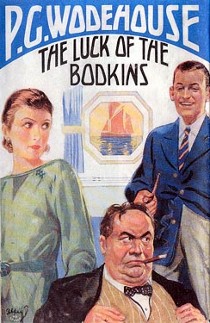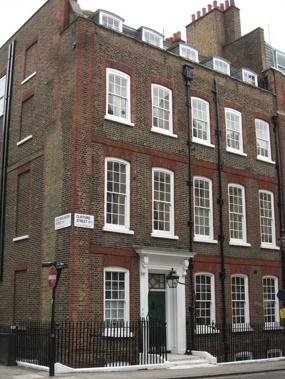
The Drones Club is a recurring fictional location in the stories of British humorist P. G. Wodehouse. It is a gentlemen's club in London. Many of Wodehouse's Jeeves and Blandings Castle stories feature the club or its members.
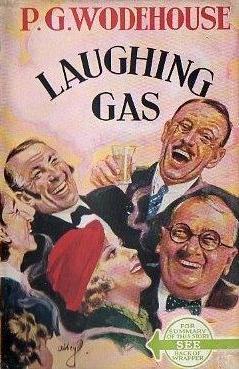
Laughing Gas is a comic novel by P. G. Wodehouse, first published in the United Kingdom on 25 September 1936 by Herbert Jenkins, London, and in the United States on 19 November 1936 by Doubleday, Doran, New York. Written in first person narrative, the story is set in Hollywood in the early 1930s and is, compared to, say, Budd Schulberg's What Makes Sammy Run? (1941), a light-hearted and exclusively humorous look at the film industry and in particular at child stars. Both Schulberg and Wodehouse describe the methods of all those would-be screenwriters and actors hunting for jobs, but Wodehouse's depiction is not at all serious or critical.
Montague "Monty" Bodkin is a recurring fictional character in three novels of English comic writer P. G. Wodehouse, being a wealthy young member of the Drones Club, well-dressed, well-spoken, impeccably polite, and generally in some kind of romantic trouble.
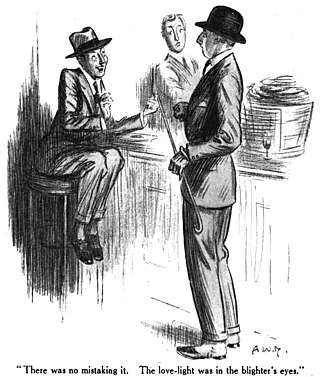
Richard P. "Bingo" Little is a recurring fictional character in the comedic Jeeves and Drones Club stories of English writer P. G. Wodehouse, being a friend of Jeeves's master Bertie Wooster and a member of the Drones Club.

Plum Pie is a collection of nine short stories by P. G. Wodehouse, first published in the United Kingdom on 22 September 1966 by Barrie & Jenkins, and in the United States on 1 December 1967 by Simon & Schuster, Inc., New York. The collection's title is derived from P. G. Wodehouse's nickname, Plum.
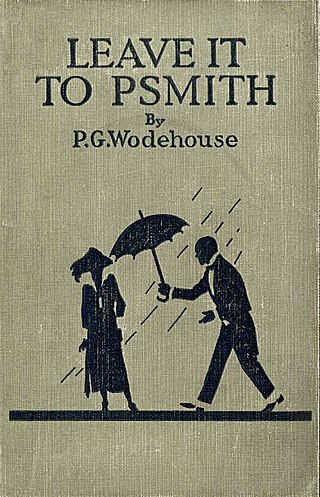
Leave It to Psmith is a comic novel by English author P. G. Wodehouse, first published in the United Kingdom on 30 November 1923 by Herbert Jenkins, London, England, and in the United States on 14 March 1924 by George H. Doran, New York. It had previously been serialised, in the Saturday Evening Post in the US between 3 February and 24 March 1923, and in the Grand Magazine in the UK between April and December that year; the ending of this magazine version was rewritten for the book form.

Blandings Castle and Elsewhere is a collection of short stories by P. G. Wodehouse. It was first published in the United Kingdom on 12 April 1935 by Herbert Jenkins, London, and, as Blandings Castle, in the United States on 20 September 1935 by Doubleday Doran, New York. All the stories had previously appeared in Strand Magazine (UK) and all except the last in various US magazines.

Nothing Serious is a collection of ten short stories by P. G. Wodehouse. It was first published in the United Kingdom on 21 July 1950 by Herbert Jenkins, London, and in the United States on 24 May 1951 by Doubleday & Co., New York. It was published again in 2008 by The Overlook Press.

Eggs, Beans and Crumpets is a collection of short stories by P. G. Wodehouse, first published in the United Kingdom on April 26, 1940 by Herbert Jenkins, London, then with a slightly different content in the United States on May 10, 1940 by Doubleday, Doran, New York.
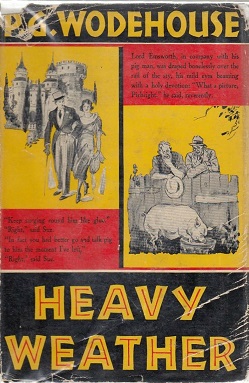
Heavy Weather is a novel by P. G. Wodehouse, first published in the United States on 28 July 1933 by Little, Brown and Company, Boston, and in the United Kingdom on 10 August 1933 by Herbert Jenkins, London. It had been serialised in The Saturday Evening Post from 27 May to 15 July 1933.

A Damsel in Distress is a novel by P. G. Wodehouse, first published in the United States on 4 October 1919 by George H. Doran, New York, and in the United Kingdom by Herbert Jenkins, London, on 15 October 1919. It had previously been serialised in The Saturday Evening Post, between May and June of that year.

The Small Bachelor is a novel by P. G. Wodehouse, first published in the United Kingdom on 28 April 1927 by Methuen & Co., London, and in the United States on 17 June 1927 by George H. Doran, New York.
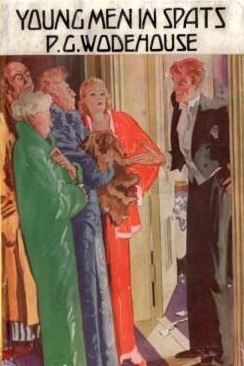
Young Men in Spats is a collection of short stories by P. G. Wodehouse, first published in the United Kingdom on 3 April 1936 by Herbert Jenkins, London, then in the United States with a slightly different selection of stories on 24 July 1936 by Doubleday, Doran, New York.

The Mating Season is a novel by P. G. Wodehouse, first published in the United Kingdom on 9 September 1949 by Herbert Jenkins, London, and in the United States on November 29, 1949, by Didier & Co., New York.
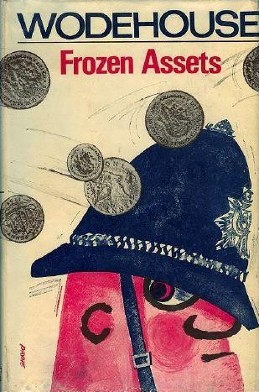
Frozen Assets is a novel by P. G. Wodehouse, first published in the United States on 14 July 1964 by Simon & Schuster, Inc., New York under the title Biffen's Millions, and in the United Kingdom on 14 August 1964 by Herbert Jenkins, London.
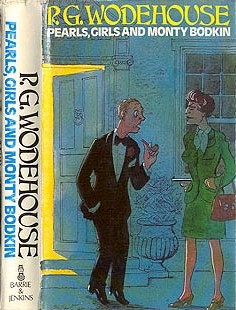
Pearls, Girls and Monty Bodkin is a comic novel by P. G. Wodehouse, first published in the United Kingdom on 12 October 1972 by Barrie & Jenkins, and in the United States on 6 August 1973 by Simon & Schuster, Inc. under the title The Plot That Thickened. Although written towards the end of the Wodehouse's life, and published 37 years after The Luck of the Bodkins (1935), the events of book follow on directly from those recounted in the earlier novel.

Bachelors Anonymous is a novel by P. G. Wodehouse, first published in the United Kingdom on 15 October 1973 by Barrie & Jenkins, London and in the United States on 28 August 1974 by Simon & Schuster, Inc., New York.

Reginald "Reggie" Pepper is a fictional character who appears in seven short stories by English author P. G. Wodehouse. Reggie is a young man-about-town who gets drawn into trouble trying to help his pals. He is considered to be an early prototype for Bertie Wooster, who, along with his valet Jeeves, is one of Wodehouse's most famous creations.
Claude Cattermole "Catsmeat" Potter-Pirbright is a recurring fictional character in the Jeeves and Drones Club stories of English comic writer P. G. Wodehouse, being a longtime school friend of Jeeves's master Bertie Wooster and a member of the Drones Club. A West End actor known as "Claude Cattermole" on stage, he is known to his friends by the nickname "Catsmeat".
